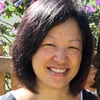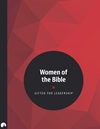A Dream Becomes Reality
In the battle for restoration and redemption, you want Cathy Loerzel on your side. She is a woman of fierce compassion, an incredibly sharp creative mind, and the will and strength to get things done. She has the sparkle of conviction and ambition in her eyes. She is a force.
Loerzel is the Vice President of Advancement at The Seattle School of Theology and Psychology and the Co-Founder and Executive Director of The Allender Center, a non-profit organization that offers training and resources around the issues of trauma and abuse. Inhabiting the worlds of ministry, academics, and business—where there are very few Christian women in high level leadership positions—Loerzel “knows how to handle being in a man’s world without needing to be less of a woman.” In her roles, she is an entrepreneur, creating new programs, systems and opportunities. She asks questions, pushes boundaries, and dreams big. She believes “there is nothing more powerful than women who understand the cost of being a woman who are not bitter or cynical, but are moving forward and creating what they think is needed.”
Loerzel grew up in northern Virginia outside of Washington, D.C., where she discovered her love of governance. She hated the partisanship, but found great potential in effective process, innovative systems, and good leadership. After graduating college with degrees in political science and history, Loerzel went to work for IBM as a consultant in the federal government sector. There was no cap on her level of talent or success because of gender in the field. But her ministry work with teenagers called and captivated her in unique ways. She recounts how kids would confide in her. “There were more things going on in their homes and hearts than we were allowing to name and be true in our church and ministry. I could do open heart surgery and diagnose what I saw, but I didn’t know how to fix or heal their hearts. So they were just bleeding out. I needed more experience and training.”
At The Seattle School of Theology and Psychology, she was encouraged to pursue who God had made her to be. Used to being regarded with envy or suspicion when she pushed boundaries, Loerzel actually felt blessed to explore and expand her capacity and gifting. “I was encouraged and supported to be big after feeling like so many people were asking me to be small,” she said. This allowed her to wrestle with her own story, but also the story of God in challenging theological and psychological ways. It was disruptive and difficult work, but Loerzel said it allowed her to “see Jesus more embodied and more clearly,” as “the messiness of God was engaged with such honor.”
A Dream Takes Root
Upon graduation, Loerzel was hired by the school and, not long after, she created The Allender Center, named after Dan Allender, the former president of the Seattle School, and a widely respected pioneer and expert in trauma and abuse therapy. At the time, Loerzel didn’t know Allender well—she only knew him as a professor—but she knew that people wanted and needed what he was teaching. She noted how ministries, churches, and leaders who were not interested in a degree program still longed to bring change and healing to their communities. She recognized how Allender’s teaching “uniquely invited people to hope, spoke truth to power, and equipped them to engage with neglected stories of trauma and abuse.”
Loerzel began to dream, wondering, How can we offer more kindness and hope in the midst of harm? How do we step in and move toward healing the parts of our heart that have only received shame and contempt? “I designed the certificate programs on a napkin then went home, stayed up all night, and wrote a proposal for a center,” she said. Today, The Allender Center is six years old and provides a variety of training, conferences, workshops, and resources, including a brand-new online course. Its offerings often have waiting lists as the need for help, healing, and restoration in our culture and communities only grows.
Unique Pressures of Being a Woman Leader
Being the founder, developer, and leader of an organization that bears a man’s name hasn’t always been easy for Loerzel. Attending conferences with Allender, Loerzel has experienced people making the assumption that she is his assistant, often getting asked to take lunch orders or get coffee. Allender always introduces Loerzel as his boss, and he notes that he loves working for her. But, even then, she says, “Many people chuckle or come up to me with a ‘wink,wink’ and say, ‘So you’re his boss’ with air quotes around ‘boss.’ I have to then do the work of stepping in with playfulness, but confidence and say that I actually am his boss. It’s important to me to honor Dan’s legacy, to honor the man. But it’s important to not to dishonor myself.”
Within The Seattle School and The Allender Center, Loerzel describes a different reaction to her roles as Vice President and Executive Director. “I am so grateful to feel support and trust,” she says. “I am encouraged to take risks and allowed to fumble. There is not the sense that people are waiting for me to fail to prove that I can’t do it.” Ironically, she has always worked for men. She laments that there are just not many women in Vice President or higher positions in Christian academics, non-profit, or ministry, but she is grateful for her current boss, Keith Anderson, the President of The Seattle School. Loerzel tells the story of how Keith came into her office one day and said, “What if we gave you wings? What could you do? You could do a lot more, couldn’t you?” She describes that encounter with a hitch of emotion in her voice saying, “No man or woman had ever really seen me without rivalry or intimidation and wanted to empower me like that before. “ She calls Anderson’s desire to give her what she needed to fly “the purest blessing” around her gifting that she has received, and she wants to create opportunities for others to take flight as well.
Loerzel is an advocate for women leaders. She says, “I have the honor and privilege of surrounding myself with powerful, creative, genius women. It’s a gift to be with [them].” She does not believe that there’s only room for one or two smart, talented women at the table. She wants to contend with that expectation and limitation and says, “I am looking for the best and brightest, and there is space for all of you.” She also wants to use her power to elevate woman in their childbearing years, saying, “I want women to thrive and have choice and opportunity in the midst of those years instead of losing them and all they offer.” At 39, married with two young boys, Loerzel is in that life stage herself and considers it a privilege to create maternity leave policies that support men, women, and families. She is also able to be creative and flexible with hours and schedules to support women juggling many roles and responsibilities.
Loerzel is visionary when it comes to thwarting the work of abuse and the harm of trauma, but if you think she is just a daydreamer, you would be underestimating her. She knows how to engage in trench warfare. If she thinks something needs to happen, she will get it done. “And I don’t wait for permission,” she adds.
A Continuous Learner
That’s not to say that she’s unaware of where she needs to learn and grow. Lately she has been wrestling with what it means to have white privilege. “I don’t take that for granted,” she says. “I recognize that I have agency and access in part because I am white from a supportive upper middle class family that provided for my education. I am realizing more and more the harm of discrimination, that it is constant, subtle, and harsh. So I want to use what I have to provide access at whatever table I am at.” At The Allender Center in particular, her team is diverse. The faces and voices up front include men and women, black, Asian, and white.
But Loerzel is still asking herself, “What more do I need to know? What do I still need to learn? How can I repent and recover? What can I change?” She admits that this has meant being mindful about allowing for voices that are different than her own in how she runs meetings and trains others. She says, “I can close the window of opportunity too quickly. I am drawn to voices that sound similar to my own, but I am realizing that there are culturally different styles of relating. It’s hard enough to have voice as a woman, but for a woman of color to be told, as a woman you don’t have voice and you also don’t look the part . . . so, someone may step in or speak up differently than me.”
Living Her Calling
Given her drive, talents, and gifting, Loerzel could work in a variety of places. When I asked her why she decided to plant her flag at The Seattle School and The Allender Center, she replied, “I want to be someone who can look into the darkest places of human harm and not flinch. I want to be able to see and engage any person and their story and offer a way out. The Seattle School and The Allender Center have a way—not the only way—but a way to become free from the shackles that keep us from love, from being able to bring the kingdom of God to bear in this world.”
Though she deeply values and honors the work of therapists and pastors and the more formal training a seminary or graduate school offers, she also believes there is a specific relevancy to what The Allender Center provides in our current cultural context. “Trauma is everywhere,” she says. “We live in a broken world, but I want people to know that there is hope, and they are not alone. The Allender Center was specifically designed to help people step into the most difficult places of human existence. So many of us can’t do that. We aren’t healed enough in our own stories, or we want to move too quickly to offering solutions or fixing things.” Loerzel’s desire is to create space for the healing of wounds on a large scale and to offer training for all different kinds of people who can take these skills back to their marriages, families, churches, communities, and workplaces. “Evil wants us to be shackled,” she states. “I want to free people to do what they were called to do on this earth.”
Loerzel knows that the work she does is hard, and that it’s rare to do it in the context of a caring community, but she believes we all can heal and change. “We will always live in a fallen world,” she says, “But God meant for his kingdom to be here on earth, so how do we live with that complexity?” She answers that question by stepping in, not by shying away. She will continue to be a woman who asks questions, pushes boundaries, creates, empowers, invites, dreams, and hopes—because that’s how God created her.

Jen Oyama Murphy is a former small-group director and support and recovery ministry director. She loves working as a lay counselor and bringing care into stories of shame and harm. Jen is honored to be a Fellow with The Allender Center in Seattle, and thanks Cathy Loerzel for all the ways she has led, trained, and supported her.












